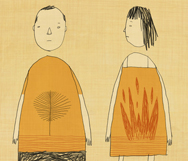
A recent article in the Modern Love column of the NYTimes has gone (hysterically) viral among marriage therapists. The message, focusing on the damaging effects of sweeping conflict under the rug, apparently resonated loudly. I share here an abridged version of author Laura Pritchett’s open, intimate piece.
* * *
Three years ago, my husband and I broke up after two decades of marriage. Our path since has been so gentle that we have been the cause of confusion and gossip in our little Colorado mountain town. Both of our cars are often in the driveway, meals are frequently eaten together and logistics make it easier for us adults to switch houses rather than our children doing so. Neighbors sometimes can’t tell the difference from before the split and after and need to be assured when they run into me at the post office: Yes, a breakup has indeed occurred.
By now, my response has become a well-rehearsed murmur: We like each other and always have. We are conflict-averse, quiet people. No one was at fault. The relationship (in my opinion, at least) had just run its natural course.
I remind them that breakups have a new paradigm; they don’t have to be hostile and hate-filled. They can be mindful, respectful. Humanity has evolved.
Also, I tell them, we’re thinking about our children, not only for the usual reasons of keeping them foremost in our minds during difficult times, but because in recent years they have already been traumatized by things beyond their control: evacuated for wildfires, cut off by historic flooding and exposed to loss and devastation.
I don’t tell them how I recently sank to my knees and laughed in half-sorrow, half-relief, only because of this: My marriage had long ago turned into the cliché of roommate-ness, and that it could suffer such a change without any emotional upheaval was revealing. In fact, the silence said it all.
The words I don’t say to my neighbors, the words that get held on my tongue, are: I wish you had heard a fight. I wish our voices had been loud enough to carry across the valley. He and I may have free speech, but we’re not so good at frank speech.
Shakespeare had it right: “My tongue will tell the anger of my heart, or else my heart, concealing it, will break.” I never spoke of the anger in my heart, the mounting resentments and hurts, and neither did he. I never demanded attention or care, and neither did he. Sometimes I would open my mouth to say something about our growing distance. Probably he did, too.
What hurts most is not the loss of the marriage. What hurts most is that our relationship had never, evidently, been the kind worth raising one’s voice about. Why hadn’t he ever learned to sit on the couch with me? Why hadn’t I ever asked him to? But most important, why hadn’t we had a big damn fight about it?
Our differences expanded over the years as we became our truer selves. Quietly. My mind would run through the list of reasons to keep quiet: I would come across as unreasonable, nagging or needy. He was tired. The children were in the house. They should not hear us fighting.
But I’m getting louder. Now, I watch couples all the time — in movies, in novels and in real life — paying attention to the way they have conflict. I lean over in restaurants. I sit on a bench near the river where two people are talking. My favorite overheard conversations include lines like: “Really? That’s all you’re going to say?”
Or, “That’s not enough for me.”
Or, “That’s just not so, honey.”
Dialogue, basically, that pushes.
I want to hug such couples, tell them to keep it up.
I sometimes wonder if our inability to strike out is heartbreakingly rooted in our love for one another. Because we did and do love each other. And we both had been so injured by our violent and loud childhoods that we found refuge and joy in the quiet.
But that kind of love often doesn’t survive life, and in the end, our silence was less about respect or affection or love than it was about cowardice. He and I were equal partners in that, turning inward instead of speaking out.